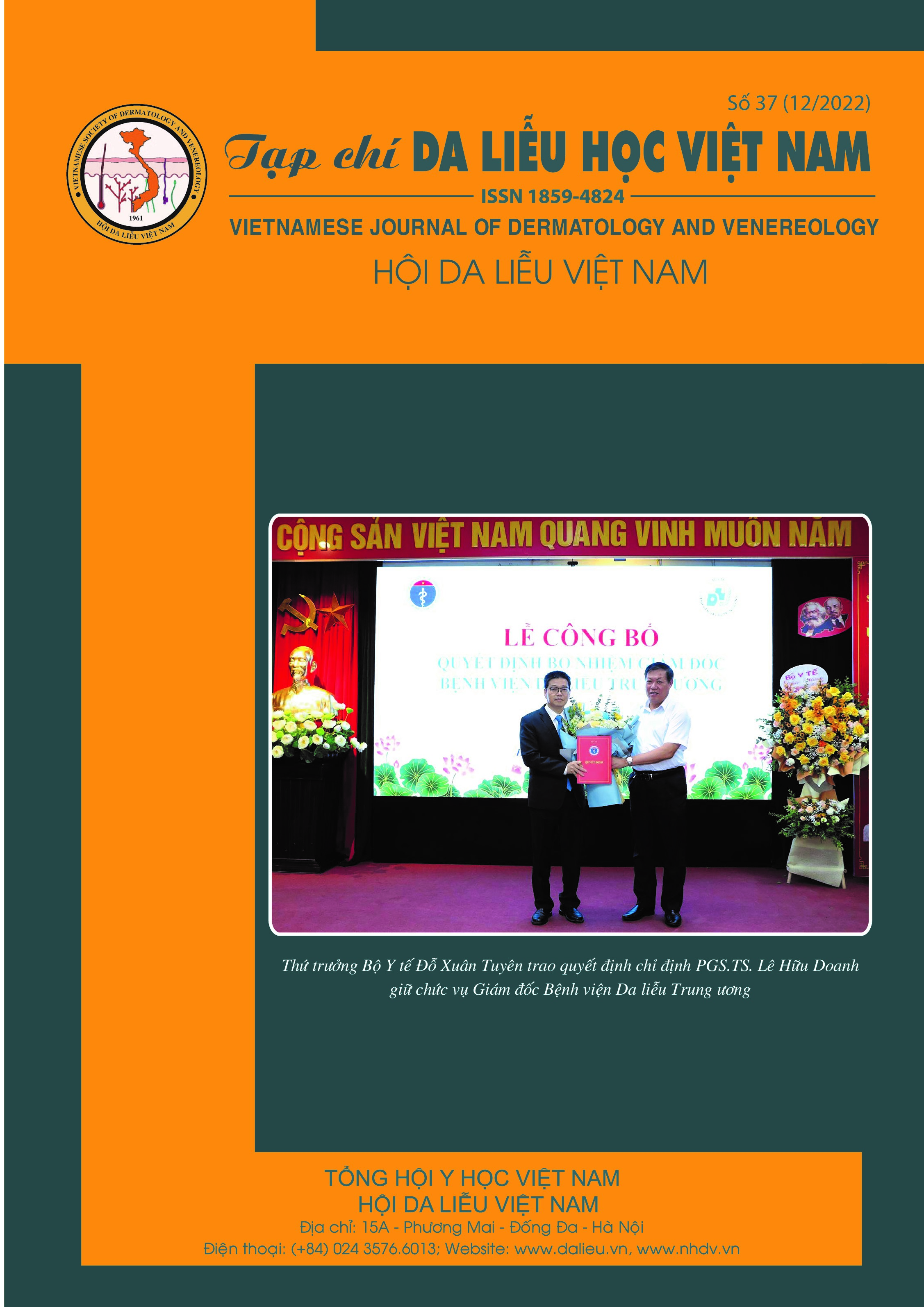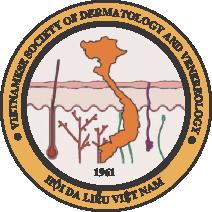ASSOCIATION BETWEEN Anti-RNP ANTIBODY AND ORGANS' DAMAGE IN OVERLAP SYNDROME OF AUTOIMMUNE CONNECTIVE TISSUE DISEASES
DOI:
https://doi.org/10.56320/tcdlhvn.37.22Keywords:
Overlap syndrome, anti U1-RNP, lung damage, muscle damage.Abstract
Objective: To evaluate the association between anti U1-RNP antibody and some organ’s damage in overlap syndrome of autoimmune connective tissue disease.
Method: A descriptive, cross-sectional, retrospective and prospective study on 55 patients with confirmed diagnosis of overlap syndrome of autoimmune connective tissue disease was conducted at the National Hospital of Dermatology and Venereology from September 2018 to September 2022. Test to detect anti -U1-RNP antibody using the ANA 23 Profile test kit was applied.
Result: Among 55 patients participating in the study, there were 48 female patients (87.3%), the female/male ratio was approximately 6.9/1. The mean age of onset was 38.8 ± 12.8 years old. There were 12 patients (21.8%) who had never been treated and 43 patients (78.2%) had a history of drug therapy that changed the course of the disease, in which the corticosteroid group accounted for the highest proportion. (76.4%). The positive rate of anti U1-RNP antibody was 45.5% and mainly positive at strong level 3+ (25.5%). The positive rate of anti U1-RNP in the treated/currently treated group was lower than the untreated group (p=0.001). The rate of interstitial lung disease detected by high resolution computed tomography (HRCT) was 54.5%, in which the positive anti U1-RNP group was higher than the negative group (p=0.001). The rate of pulmonary hypertension was 32.7%, in which the positive anti U1-RNP group (56.0%) was also higher than the negative group (15.4%) (p=0.002). The rate of increase in muscle enzymes in the positive group (48.0%) was also higher than in the negative group (13.3%) (p=0.005).
Conclusion: The positive rate of anti-U1-RNP antibody in patients with overlap syndrome of autoimmune connective tissue diseases is associated with a history of immunosuppressive therapy. Patients with positive anti U1-RNP antibody had a higher risk of developing lung and muscle damage than the negative group.





